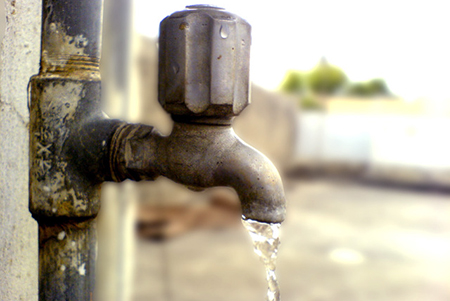How can rural people be beneficiaries of piped water?
During recent decades the number of chronic diseases such as kidney stones have increased due to lack of access to safe drinking water services in Kazakhstan.
A recently launched water program has aim to cover 80% of rural people with the piped water supply. However, still there is a strong unwillingness among rural water users to be connected to and to pay maintenance cost for the piped water.
Kazakhstan is a former Soviet Republic that is transitioning from state planned to market economy. This transition is changing patterns of basic services such as water and sanitation.
The Soviet Union sought to tackle the desperate living conditions that the major part of the population suffered from in the early twentieth century by expanding access to essential services such as piped water. However, when the Soviet Union broke apart in 1991, many people, especially in rural areas that historically have been disadvantaged, still had limited access to drinking water.
Since then, the situation has not improved much. Important elements of the state apparatus have been dismantled, leading to shortages of basic goods and services while the economic crisis has reduced funds that could otherwise have been used to invest in basic infrastructure for water and sanitation.
During the transition from a state planned to a market economy, existing water supply systems have deteriorated due to lack of maintenance. Consequently, the Kazakhstani authorities have incentive to provide a better water supply to rural families by attracting the private sector into the field.
However, to expedite the process and to make it more efficient, customers’ opinion and their willingness to pay for improved water services plays an important role. Recent research provided in selected villages of the region has showed that those who use water from private borehole or well have no water charges, perceive their water as of good quality and, therefore, have no or very low willingness to be connected and to pay for the maintenance of piped water system.
And those who pay for delivering of water or obtain water from either open source or standpipe due to water charges or time spent for collecting water have higher willingness to pay the maintenance costs.
The obtained results can be used to better identify the proper technological choice and the level of water service to be provided making rural water projects both sustainable and replicable at a larger scale. This information highlights the importance of involvement of local water users in the rural water supply planning processes.








